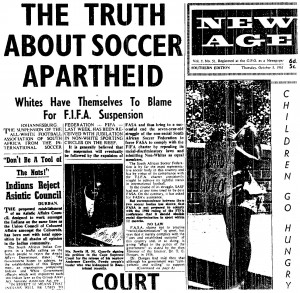FIFA General Secretary Jerome Valcke revealed that tickets prices for South African residents will be slashed to ensure that all World Cup matches will be ‘sold out’. Thousands of Category 2 and 3 tickets will be sold at Category 4 prices — twenty US dollars — although details on sales have not yet been released. This announcement came on the heels of news that FIFA expects to make a marginal loss on the tournament. Valcke placed part of the blame on airlines and travel agencies for overcharging foreign football tourists. In South Africa, however, FIFA’s byzantine ticketing process — heavily reliant on internet-based credit card sales — has been criticized. Others say Bafana Bafana’s mediocrity has not helped and that even the lower ticket prices are beyond the reach of most ordinary South Africans.
Tag: FIFA
2010 Mascot Made in Chinese Sweatshop?
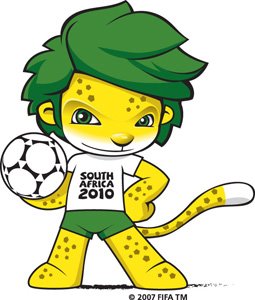
The Sunday Times reports that Chinese workers earn about $3 a day making the official 2010 World Cup mascot. Trade union federation Cosatu spokesperson said: ‘We are utterly appalled that even Zakumi, the official mascot, is being made, under such appalling conditions, in China.’ The newspaper alleges that ‘a central figure in [the] scandal ‘ is an ANC member of parliament who stated that the deal was sanctioned by FIFA and its product licensing and brand management partner Global Brands Group (GBG). FIFA said it would look into working conditions at the Shanghai factory.
Click here to read the full article.
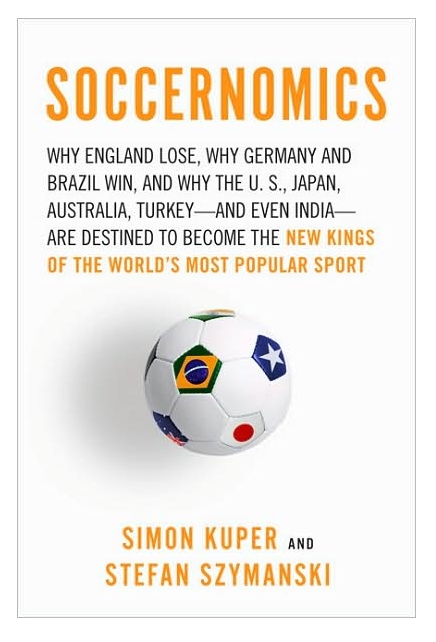 Stefan Szymanski, Director of the MBA program at Cass Business School in London and co-author of the new book Soccernomics, said on SAfm that the 2010 World Cup may turn out to be a ‘shocking waste of South Africa’s resources’ and not the economic ‘bonanza that government and Fifa would have us believe’. According to Szymanski, the only benefit that SA will reap from the tournament is a ‘feel-good factor’.
Stefan Szymanski, Director of the MBA program at Cass Business School in London and co-author of the new book Soccernomics, said on SAfm that the 2010 World Cup may turn out to be a ‘shocking waste of South Africa’s resources’ and not the economic ‘bonanza that government and Fifa would have us believe’. According to Szymanski, the only benefit that SA will reap from the tournament is a ‘feel-good factor’.
Read the full story here.
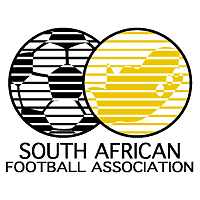
Kick Off magazine reports that Kirsten Nematandani emerged victorious in the contentious SAFA presidential race during a marathon annual general meeting in Joburg. Nematandani was elected unopposed after 2010 LOC Chief Executive Officer Danny Jordaan and Chairman Irvin Khoza withdrew from the race.
In South African football circles, the outcome of this hotly contested election (more than 100 police officers searched delegates at the Southern Sun hotel for weapons), was widely seen as a victory for Danny Jordaan’s Football Transformation Forum at the expense of PSL boss Irvin Khoza. According to the Mail and Guardian, the new SAFA chief may face a legal challenge, but aims to go ahead and meet soon with SA president Jacob Zuma, Minister of Sport Makhenkesi Stofile and FIFA president Sepp Blatter to outline the way forward for South African football.
Sept. 29 update: press conference erupts in chaos as PSL issues statement declaring Safa’s presidential election to be unconstitutional and illegitimate. No comment from FIFA.
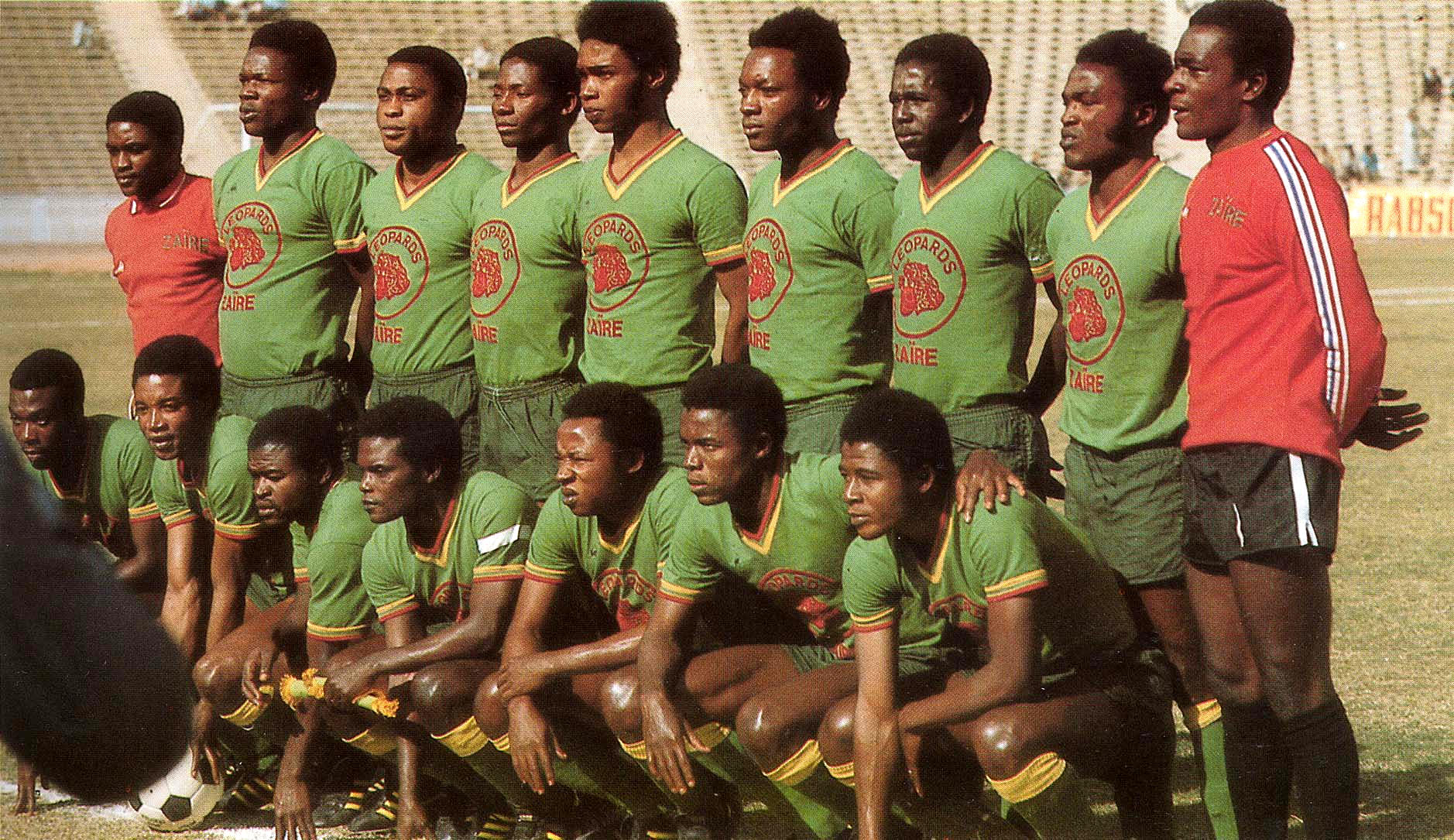
(Insert above. Zaire, Africa’s only representative in the 1974 World Cup Finals.)
(Please be aware the following is classic football anorak commentary. Davy considers how UEFA can best re calibrate its representation in future World Cups.)
Thirteen European nations will materialize in South Africa in 2010. Many deservedly so. Only five African nations will join them. I expect after the performances of Africa’s representatives, demand for a fairer apportioning of places in future World Cups will be irresistible and undeniable.
The fat is in the UEFA zone, as are the bigger television audiences and mobile credit card carrying supporters. Trimming UEFA representation in future World Cups could be a gristly experience. Asia and the Americas have sound claims also.
South Africa and FIFA: Defining Moment
FIFA’s suspension of South Africa from world football in September 1961 was one of the first international indictments of apartheid. Click here to read a recent piece on this major event in The Financial Times of London. It is a powerful example of how Africans accelerated the democratization of football and made the game more fully global.
FIFA denied my request for tickets so I followed the Confederations Cup from home. I drew on my observations from afar as well as media coverage and conversations with friends in South Africa to learn these five things from the tournament:
1. This beautiful yet scarred country will host an eventful World Cup next year. The stadiums are nice and the climate in different cities may surprise visitors. Also, the difficulties with transport, accommodation, communications, and moving people to the stadiums may be mitigated by next year but are not likely to disappear.
2. The Confed Cup is not a terribly interesting competition. It features too many marginal sides (New Zealand, Iraq, South Africa) and tired European giants (Spain and Italy). No wonder we had to depend on the depth and individual brilliance of Brazil and the do-or-die attitude of the improving USA for entertainment.
3. Despite what the organizers tell us, the vuvuzelas are not part of South Africa’s ‘traditional’ fan culture. The horns appeared in the mid-1990s and did not become widespread until a few years ago. And they were ‘invented’ by a white guy.
4. The trend of the past decade that saw raw speed and set pieces decide so many matches will probably continue in 2010. Given the heavy-handed emphasis on defensive tactics, the pace of players like Kaka’ offers precious opportunities to burst through defensive walls and exploit open space on counter-attacks. Corners and free kicks are key, just ask the USA and South Africa.
5. The 2010 World Cup is a huge national project aimed at enhancing ‘Brand South Africa’ — the image of the country as a modern, democratic, business-friendly, tourist destination. Football-crazy South Africans legitimize this political and economic agenda, even though they pay billions to host the event while FIFA keeps most of the financial profits.
